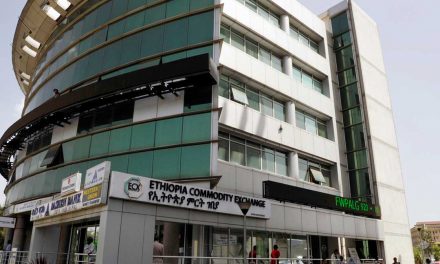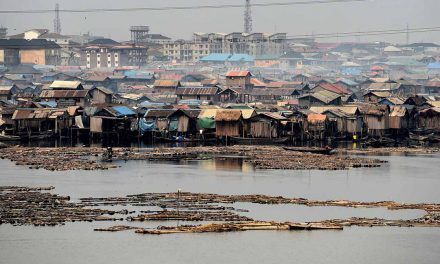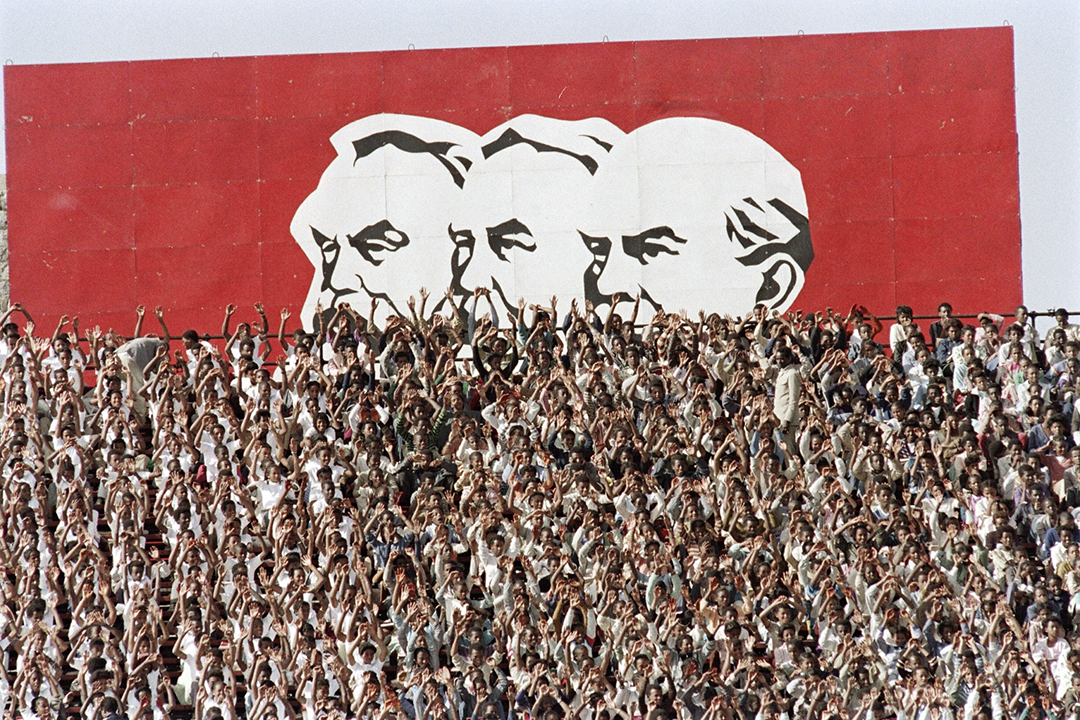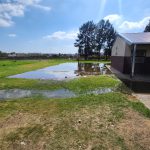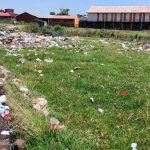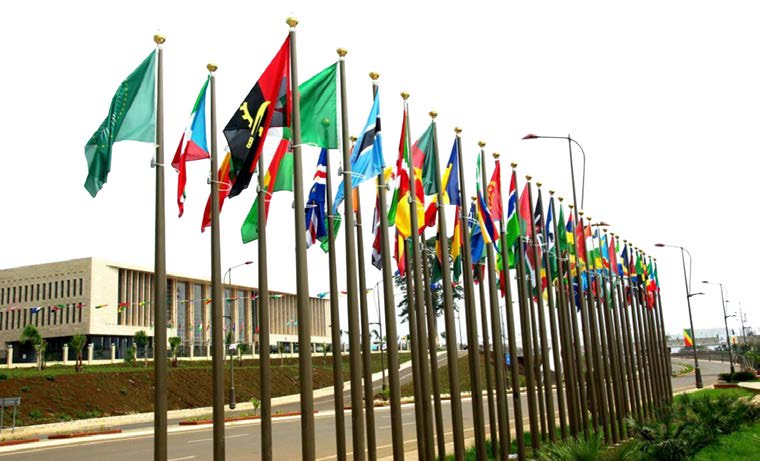
The 2011 17th Ordinary African Union Summit in Malabo, Equatorial Guinea © Embassy of Equatorial Guinea. Image Flickr
Morocco’s return to the AU could herald the expulsion of the Sahrawi Arab Democratic Republic, once again endangering African unity
When Morocco’s King Mohammed VI delivered a royal letter to the African Union (AU) Summit in Kigali last July, some saw it as a major turning point in one of Africa’s oldest diplomatic disputes. More than three decades ago Morocco left the AU’s predecessor, the Organisation of African Unity (OAU), in protest against the OAU recognising the Sahrawi Arab Democratic Republic (SADR) in Western Sahara. Now Morocco wants back in. “Our friends have long been asking us to return among them so that Morocco may take its natural place within its institutional family,” the king said in the letter sent to AU chairman Idriss Déby Itno. “That time has now come. On reflection, it has become clear to us that when a body is sick, it is treated more effectively from the inside than from the outside.”
Morocco’s allies welcome the long- awaited rapprochement, arguing that including the North African country will strengthen the AU. Critics say the kingdom really wants to solidify support for its position in Western Sahara, and may divide the organisation again. “My country’s passionate relationship with the continent explains why the recognition of a pseudo-state was understandably too hard for the Moroccan people to accept. That … coup against international legality led the Kingdom of Morocco to seek to avoid the division of Africa, and the price Morocco had to pay was the painful decision to leave its institutional family,” the king wrote.
In September 2016 Taieb Fassi Fihri, Morocco’s minister of foreign affairs, submitted a request to sign the AU Constitutive Act, officially opening a bid to become a member of the AU. Morocco’s membership will need approval from a majority of member states; the matter will be put to a vote, possibly early in 2017.
The status of Western Sahara has been hotly contested since the 1970s, when the OAU started calling for a referendum on its independence. Morocco annexed it in 1976, after former colonial power Spain had withdrawn. The Polisario Front, a liberation movement backed by Algeria, fought a war for independence. A UN-brokered ceasefire in 1991 was supposed to lead to a referendum on independence. The referendum was never held and a diplomatic impasse prevails today.
The AU was founded on principles of African unity and self-determination, and the territorial dispute has long caused tension within the organisation. Polisario had already received enough recognition to be admitted by the late 1970s and early 1980s because of aggressive Algerian lobbying and sympathy for what appeared to be a neo-colonial struggle, says Jacob Mundy, assistant professor of peace and conflict studies at Colgate University.
“The crisis was: how does the organisation remain committed to its principles and not recognise [SADR]? As this became more and more absurd, the organisation tried to get Morocco to agree to a referendum on independence,” he said. Tensions escalated in 1982 when Edem Kodjo of Togo, then secretary general of the OAU, tried to unilaterally admit SADR to the organisation. Internal disagreements broke out within the OAU, threatening African unity.
“The various countries were very angry with Morocco, because [it] wouldn’t allow the organisation to function. In the end, [it] left, and the OAU said good riddance,” said Anna Theofilopoulou, a former UN official who served as a member of former UN Personal Envoy James Baker’s negotiating team in Western Sahara. She has since followed the AU’s role in the matter; “My initial thinking this time was that Morocco was just creating divisions and problems in the AU all over again.”
In recent years Morocco has stepped up lobbying efforts across the continent, building economic and diplomatic ties that have resulted in greater support within the AU. “Morocco has succeeded in getting a significant number African states to de-recognise SADR, mainly Francophone African countries,” said Mundy. “You can’t de-recognise a state unless it falls apart, like Yugoslavia. It’s mainly symbolic, but I think Morocco feels like this is enough.”
Following the Moroccan king’s letter to the AU, 28 AU member states signed a statement welcoming Morocco’s request to join and called for the Immediate suspension of SADR from the organisation and its bodies. Meanwhile Dr Nkosazana Dlamini-Zuma, the AU Commission chairwoman, reaffirmed the organisation’s support for the Sahrawis’ right to self-determination. Algeria says it has no concerns about Morocco’s return, but condemned the kingdom’s attempt to expel SADR.
“The AU Charter is very clear … Morocco cannot adhere to the AU [if it includes] Western Sahara as part of Moroccan territory. Morocco knows … this requirement,” said Ahmed Boukhari, Polisario’s representative to the UN. Article 4 of the AU Constitutive Act calls for respect for the borders inherited from colonial powers, he noted.
“No country, except a few friends of Morocco Senegal, Gabon, Burkina Faso, Comoros … will support Morocco’s attempt to annex Western Sahara,” he said. In his view, Morocco will have to withdraw from the territory and engage in bilateral negotiations to settle the conflict if it becomes an AU member. Boukhari said he believed Morocco’s move to join the organisation was a result of increasing pressure to resolve the conflict in Western Sahara and the realisation that self- exclusion had not worked.
The AU has been more pronounced about Western Sahara, and in recent years it has addressed the question in its Peace and Security Council. In 2016 it issued legal opinions on the territory and appointed Joaquim Chissano, former president of Mozambique, as a special envoy to Western Sahara, says Erik Hagen, director of the Norwegian Support Committee for Western Sahara, which advocates the rights of Sahrawis.
“[The special envoy] has been giving briefings to members of the security council in New York, which provoked Morocco. I think Morocco’s attempt to join is an effort to counter that. They see the best way to do that is from the inside, not outside, even though having a seat beside Western Sahara is giving some sort of recognition of the existence of the republic.”
Morocco might have sufficient support to rejoin the AU while SADR remains a member. It might then try to introduce a motion altering the AU’s charter to allow the expulsion of the SADR, which would need a two-thirds majority. But if the AU agreed to this, it would violate the principle of the right of people to self-determination, says Désiré Assogbavi, a political analyst specialising in international law and African politics and head of the Oxfam international liaison office to the AU. “This would terribly weaken the organisation’s standing.”
If Morocco rejoins the AU and respects basic principles, however, a range of positive consequences could follow, Assogbavi added. These would include improvements to security cooperation and counterterrorism operations in North Africa and the Sahel, and a greater role for the AU
in finding a lasting solution to the Western Sahara conflict. But some critics question whether the AU could play such a role, even if Morocco is a member. The AU has continued to insist on the referendum originally proposed in 1991, even though the UN is on record as saying that it is unlikely to happen in the present context, says Theofilopoulou. “The AU is restricted because it’s an issue of decolonisation, which is a major issue for them. [The SADR] is the last colony in Africa. [But] Morocco has figured out by now that nobody is going to pressure them.”


